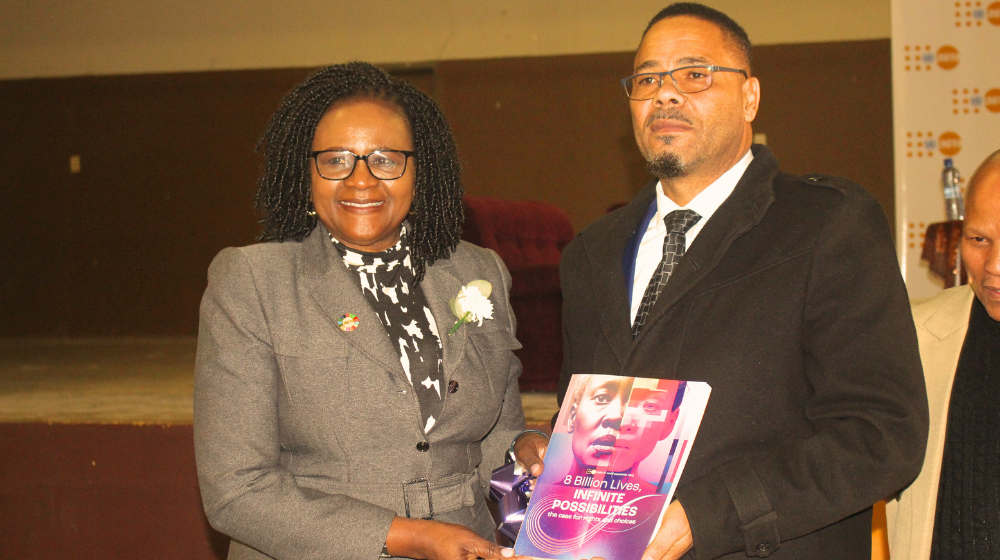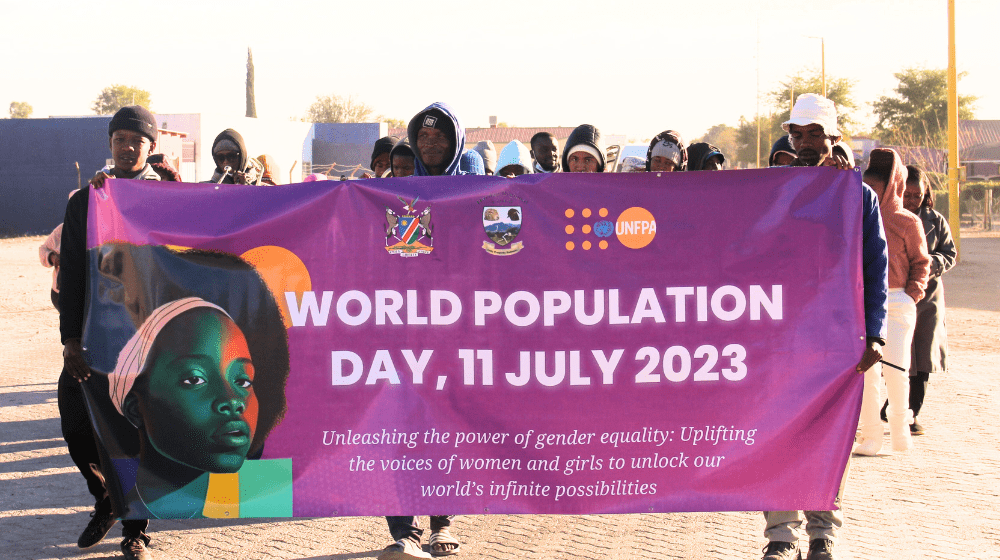MARIENTAL, Hardap − Namibia celebrated World Population Day, on July 11, a day set aside to raise attention to issues concerning global population.
This year, World Population Day highlighted the need to advance gender equality to help realise the dreams of all 8 billion people on our planet.
The United Nations System in Namibia, led by the UNFPA Namibia Country Office, joined the National Planning Commission, ministries of gender, health, justice and youth, Hardap regional and local leadership, as well as civil society organisations to commemorate World Population Day in Mariental, the capital of Hardap region under the theme: “Uplifting the voices of women and girls to unlock our world’s infinite possibilities”.

UNFPA’s flagship 2023 State of the World Population (SWOP) Report was also launched as part of this year's commemoration. The 2023 SWOP report, entitled: “8 billion lives, infinite possibilities, the case for rights and choices," calls for a radical rethink of how population numbers are framed as governments increasingly adopt policies aimed at raising, lowering, or maintaining fertility rates.
The Report urges governments and media to abandon overblown narratives about population sizes, making the case that efforts to influence fertility rates for having ‘too many’ or ‘too few’ people are very often ineffective and can erode women’s rights.
Many women denied their bodily autonomy
A staggering 44% of partnered women and girls in 68 reporting countries do not have the right to make informed decisions about their bodies when it comes to having sex, using contraception and seeking health care; and an estimated 257 million women worldwide have an unmet need for safe, reliable contraception, according to the 2023 SWOP Report.
In Namibia, 32% of women between the ages of 15 and 49 have reported experiencing physical violence from an intimate partner at some point in their lives. Additionally, 6% of women have reported experiencing violence while pregnant. The country also has a high rate of teenage pregnancy at 19% and child marriage at 18.4%.
These alarming statistics highlight the pressing need for collective action to break down barriers and promote a more equitable society, in order to achieve both Sustainable Development Goals and National Targets.
Gender equality not a zero-sum game
“The realisation of gender equality, the human rights of women and girls, and the empowerment of women is a national priority for our country, as it is clearly indicated in the Constitution of the Republic of Namibia,” said Hon. Reverend Salomon April, Governor of Hardap region.
“In this regard, the Government continues to put more efforts into implementing the National Gender Policy through the prioritised National Plan of Action on Gender-Based Violence to end the scourge of Violence against Women and Girls,” added Hon. Reverend April.
He emphasizes that the fight against gender inequality is not only a concern of the Ministry of Gender or the Namibian Government alone; it requires the involvement of all stakeholders.
“I therefore implore us all to be the key drivers of change and enhance the response on gender equality and women’s empowerment at the national level,” he urged.
“Let us unite once more to imagine a world in which every one of us has the equal opportunity to thrive, and let us join forces to ensure a reality in which every nation’s real wealth – no matter its size or stage of development – is its people, and that means all people, not half the population,” reiterated Gift Malunga, UNFPA Namibia Representative.
The World Population Day commemoration also included a panel discussion on the theme and a march by young people.


